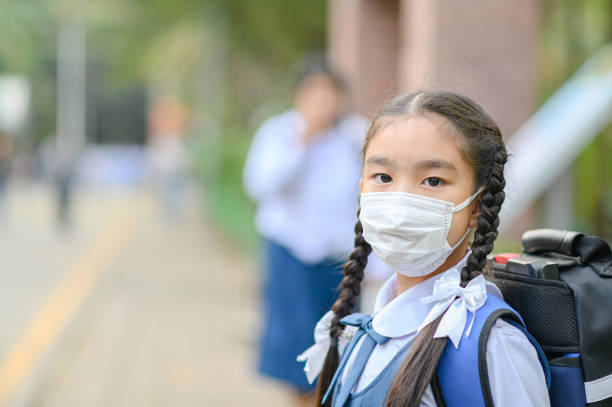The Families First Coronavirus Response Act: Navigating Support Amidst a Global Crisis
In the wake of the unprecedented COVID-19 pandemic that swept across the world, governments and societies were faced with the urgent need to protect public health while also addressing the economic and social ramifications of the crisis. One significant legislative response to these challenges in the United States was the enactment of the Families First Coronavirus Response Act (FFCRA). Introduced in March 2020, the FFCRA aimed to provide crucial support to individuals, families, and workers as they grappled with the multifaceted impacts of the pandemic. This comprehensive piece of legislation encompassed provisions related to paid sick leave, expanded family and medical leave, and provisions for free COVID-19 testing, setting the stage for a comprehensive response to the crisis.
At its core, the FFCRA sought to alleviate the financial and health-related concerns of American families during the pandemic. The Act mandated that certain employers provide emergency paid sick leave and expanded family and medical leave to eligible employees. This provision was particularly significant in recognizing the need for employees to take time off to care for their own health or that of their family members without facing the threat of job loss or financial instability. The Act covered various scenarios, including self-isolation due to a COVID-19 diagnosis, caring for a family member under quarantine, or caring for a child whose school or daycare had been closed due to the pandemic.
Importantly, the FFCRA recognized that the pandemic disproportionately affected low-income individuals and families. It established guidelines for employers to provide paid leave at different rates based on the reasons for leave, ensuring that financial support was proportionate to the gravity of the situation. This provision aimed to prevent the further exacerbation of inequalities during a time when vulnerable populations were most at risk.
In addition to paid leave provisions, the FFCRA addressed the critical issue of access to COVID-19 testing. Recognizing that widespread testing was essential for controlling the spread of the virus, the Act mandated that group health plans and health insurance issuers cover the cost of COVID-19 diagnostic testing. This measure was crucial in removing barriers to testing and ensuring that individuals could access testing without facing financial obstacles.
The FFCRA also included provisions to support businesses in implementing the Act's requirements. To offset the financial burden on employers, the legislation provided tax credits to eligible employers who provided the required paid leave. This was a strategic move to encourage compliance with the Act and minimize disruptions to businesses during an already challenging economic period.
However, it's important to note that the FFCRA had a limited duration. The Act was in effect from April 1, 2020, through December 31, 2020. While it provided crucial support during the initial phases of the pandemic, its expiration left a gap in the ongoing response to the crisis. As the pandemic evolved and its impacts persisted, discussions emerged regarding the need for continued support measures beyond the expiration of the FFCRA.
The Families First Coronavirus Response Act was undoubtedly a significant step in addressing the complex web of challenges presented by the COVID-19 pandemic. It acknowledged the inseparable relationship between public health and socioeconomic well-being, aiming to strike a delicate balance between safeguarding public health and providing financial support to families and individuals. The Act's provisions for paid leave, free testing, and tax incentives for employers demonstrated a multifaceted approach to tackling the crisis, offering a glimpse into the potential of comprehensive legislation during times of unprecedented turmoil.
In conclusion, the Families First Coronavirus Response Act stood as a testament to the swift legislative response that can be marshaled in the face of a global crisis. By addressing critical issues such as paid leave, testing access, and business support, the Act exemplified the intricate interplay between public health and economic stability. As the pandemic's effects continued to unfold, the Act prompted further discussions about the necessity of ongoing support measures beyond its initial enactment. In the annals of history, the FFCRA will be remembered as a pivotal piece of legislation that sought to put families and individuals first in the midst of an unparalleled challenge.
In the wake of the unprecedented COVID-19 pandemic that swept across the world, governments and societies were faced with the urgent need to protect public health while also addressing the economic and social ramifications of the crisis. One significant legislative response to these challenges in the United States was the enactment of the Families First Coronavirus Response Act (FFCRA). Introduced in March 2020, the FFCRA aimed to provide crucial support to individuals, families, and workers as they grappled with the multifaceted impacts of the pandemic. This comprehensive piece of legislation encompassed provisions related to paid sick leave, expanded family and medical leave, and provisions for free COVID-19 testing, setting the stage for a comprehensive response to the crisis.
At its core, the FFCRA sought to alleviate the financial and health-related concerns of American families during the pandemic. The Act mandated that certain employers provide emergency paid sick leave and expanded family and medical leave to eligible employees. This provision was particularly significant in recognizing the need for employees to take time off to care for their own health or that of their family members without facing the threat of job loss or financial instability. The Act covered various scenarios, including self-isolation due to a COVID-19 diagnosis, caring for a family member under quarantine, or caring for a child whose school or daycare had been closed due to the pandemic.
Importantly, the FFCRA recognized that the pandemic disproportionately affected low-income individuals and families. It established guidelines for employers to provide paid leave at different rates based on the reasons for leave, ensuring that financial support was proportionate to the gravity of the situation. This provision aimed to prevent the further exacerbation of inequalities during a time when vulnerable populations were most at risk.
In addition to paid leave provisions, the FFCRA addressed the critical issue of access to COVID-19 testing. Recognizing that widespread testing was essential for controlling the spread of the virus, the Act mandated that group health plans and health insurance issuers cover the cost of COVID-19 diagnostic testing. This measure was crucial in removing barriers to testing and ensuring that individuals could access testing without facing financial obstacles.
The FFCRA also included provisions to support businesses in implementing the Act's requirements. To offset the financial burden on employers, the legislation provided tax credits to eligible employers who provided the required paid leave. This was a strategic move to encourage compliance with the Act and minimize disruptions to businesses during an already challenging economic period.
However, it's important to note that the FFCRA had a limited duration. The Act was in effect from April 1, 2020, through December 31, 2020. While it provided crucial support during the initial phases of the pandemic, its expiration left a gap in the ongoing response to the crisis. As the pandemic evolved and its impacts persisted, discussions emerged regarding the need for continued support measures beyond the expiration of the FFCRA.
The Families First Coronavirus Response Act was undoubtedly a significant step in addressing the complex web of challenges presented by the COVID-19 pandemic. It acknowledged the inseparable relationship between public health and socioeconomic well-being, aiming to strike a delicate balance between safeguarding public health and providing financial support to families and individuals. The Act's provisions for paid leave, free testing, and tax incentives for employers demonstrated a multifaceted approach to tackling the crisis, offering a glimpse into the potential of comprehensive legislation during times of unprecedented turmoil.
In conclusion, the Families First Coronavirus Response Act stood as a testament to the swift legislative response that can be marshaled in the face of a global crisis. By addressing critical issues such as paid leave, testing access, and business support, the Act exemplified the intricate interplay between public health and economic stability. As the pandemic's effects continued to unfold, the Act prompted further discussions about the necessity of ongoing support measures beyond its initial enactment. In the annals of history, the FFCRA will be remembered as a pivotal piece of legislation that sought to put families and individuals first in the midst of an unparalleled challenge.



